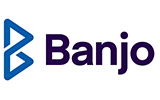BUSINESS FINANCE
Compare unsecured business loans
By Sean Callery
Compare your best business loan options from 50+ lenders in Australia.
Fast, hassle-free funding up to $20 million
Find the best finance fit for your business
Get help from our experts at every step
Our Business Finance experts are here to help. Updated 2 Feb 2026.

Instantly compare business loan rates from the lenders on our panel. To check your personalised rates and eligibility – and for a smoother application process – simply hit ‘Compare now’ and our business lending experts will do the work for you.
Rates updated 20 February 2026
Loan purpose
Loan amount
| Product | Interest rates from (p.a.) | Loan amounts | Loan terms | Compare |
|---|---|---|---|---|
 BOQ Business Loan | 7.50% | Up to $250k | Quoted on application | |
 Liberty Business Loan | 7.95% - 17.45% | Up to $350k | 1 - 7 years | |
 Moneytech Business Loan | 7.99% - 9.56% | $25k - $2m | Quoted on application | |
 Group And General Business Loan | 8.29% - 10.89% | $10k - $350k | 1 - 5 years | |
 Multipli Business Loan | 8.49% | $30k - $1m | Quoted on application | |
 TruePillars Business Loan | 9.90% - 20.90% | $25k - $300k | 1 - 7 years | |
 Finance One Business Loan | 11.45% - 23.45% | $5k - $250k | Up to 7 years | |
 Drive Finance Solution Business Loan | 12.54% - 14.80% | Up to $300k | 1 - 5 years | |
 Dynamoney Business Loan | 12.85% - 19.40% | $2k - $1m | 6 months - 7 years | |
 Azora Finance Business Loan | 12.95% - 14.95% | $1k - $250k | Quoted on application | |
 Banjo Loans Business Loan | 13.95% - 34.95% | $20k - $2m | 2 months - 5 years | |
 MorrisFinance Business Loan | 14.99% - 18.99% | $5k - $200k | 1 - 5 years | |
 Lumi Business Loan | 15.50% - 44.50% | $5k - $750k | Up to 5 years | |
 Capify Australia Business Loan | 21.13% - 77.13% | $2k - $1m | 1 month - 2 years | |
 ANZ Business Loan | Quoted on application | Up to $1m | 3 - 7 years | |
 APositive Business Loan | Quoted on application | $10k - $20m | Quoted on application | |
 Bizcap Business Loan | Quoted on application | $5k - $4m | 4 months - 1 year | |
 Branded Financial Services Business Loan | Quoted on application | $5k - $250k | 1 - 7 years | |
 Earlypay Business Loan | Quoted on application | $50k - $10m | Up to 5 years | |
 FlexFleet Business Loan | Quoted on application | $10k - $500k | 3 - 5 years |
With a few simple details, our experts can offer you personalised rates and results, fast. It means you can compare with confidence, choose smarter and save time and money.
Comparing Business Loans can be complex. When things get tricky, our experienced brokers are on hand to listen and give straight answers to help match your business with the right loan from 50+ lenders.
We won’t just help you find the best finance for your business. We’ll take care of the admin, help you source assets if needed, and keep you informed at every step in the process.
Thousands of Aussie businesses trust Money.com.au to source their finance. Why? Because WE GIVE A BUCK about getting them better deals the right way. It shows in our score of 4.8/5 on Trustpilot.
Business loan interest rates in Australia start from 6.39% p.a. for secured loans and 11.75% p.a. for unsecured business finance, according to Money.com.au's database of lenders.
But rates can be higher than that on some business loans. In fact, our analysis of 50+ lenders across all borrower categories shows the average business loan interest rate is around 17.29% p.a. Businesses with existing finance on a variable rate will be watching the Reserve Bank of Australia (RBA) closely as it's widely expected to lift rates in February.
The type of business matters too, with the latest data from the RBA shows small businesses pay an extra 1.84 percentage points per annum on average on new business loans compared to large businesses.
Our analysis shows that on average business finance rates are lower on variable loans versus fixed. Rates on new business loans are also slightly lower on average than those on outstanding loans.
Business finance rates also vary based on the type of loan you choose, as the tables below show.
| Loan | Interest rates | Loan amounts | Loan terms |
|---|---|---|---|
| BOQ Business Loan | 7.50% | Up to $250k | Quoted on application |
| Liberty Business Loan | 7.95% - 17.45% | Up to $350k | 1 - 7 years |
| Moneytech Business Loan | 7.99% - 9.56% | $25k - $2m | Quoted on application |
| Group And General Business Loan | 8.29% - 10.89% | $10k - $350k | 1 - 5 years |
| Multipli Business Loan | 8.49% | $30k - $1m | Quoted on application |
| TruePillars Business Loan | 9.90% - 20.90% | $25k - $300k | 1 - 7 years |
| Finance One Business Loan | 11.45% - 23.45% | $5k - $250k | Up to 7 years |
| Drive Finance Solution Business Loan | 12.54% - 14.80% | Up to $300k | 1 - 5 years |
| Dynamoney Business Loan | 12.85% - 19.40% | $2k - $1m | 6 months - 7 years |
| Azora Finance Business Loan | 12.95% - 14.95% | $1k - $250k | Quoted on application |
| Loan | Interest rates starting from | Loan amounts |
|---|---|---|
Group And General Business Loan | 6.39% p.a. | $10k - $350k |
ScotPac Business Finance Business Loan | 6.50% p.a. | $10k - $4m |
Resimac Business Loan | 6.64% p.a. | $5k - $450k |
Dynamoney Business Loan | 6.69% p.a. | $2k - $1m |
Flexicommercial Business Loan | 6.85% p.a. | $10k - $750k |
| Loan | Interest rates starting from | Loan amounts |
|---|---|---|
Earlypay Business Loan | 11.75% p.a. | $50k - $1.5m |
Prospa Business Loan | 14.95% p.a. | $5k - $800k |
Lumi Business Loan | 15.50% p.a. | $5k - $750k |
Moula Business Loan | 15.99% p.a. | $10k - $250k |
Business Fuel Business Loan | 16.00% p.a. | $10k - $500k |
| Loan | Interest rates starting from | Credit limits |
|---|---|---|
Dynamoney Secured Business Overdraft | 14.30% p.a. | $5k - $500k |
Shift Business Overdraft | 14.95% p.a. | $25k - $1 million |
Suncorp Bank Unsecured Business Overdraft | 14.99% p.a. | Up to $50k |
NAB QuickBiz Unsecured Business Overdraft | 15.50% p.a. | $5k- $50k |
ANZ Unsecured Business Overdrafts | 15.45% p.a. | $2k to $300k |
A business loan allows your business to borrow funds to purchase assets or access working capital for day-to-day operations and growth opportunities.
The business repays the loan, plus interest and fees, over a fixed term. Typically a business can borrow an amount of money relative to the level of revenue it generates.
According to Money.com.au data, the top reasons businesses apply for a loan are: Day-to-day capital (31.71%), Vehicle or transport (27.98%); Purchase existing business (14.51%)
If you’re looking to compare business finance options, and ultimately get the best deal for your business, these are the main factors to keep in mind:
See your estimated business loan repayments per week, fortnight or month.

Deciding on the best business loan is not simply a case of finding the lender with the sharpest rates. There are several different forms of business finance that may ultimately be the best fit for you, depending on what you need the funds for.
Below we’ve summarised the main options to consider.
A secured business loan is backed by a commercial asset or residential property which acts as collateral to secure the loan. In some cases, you may be able to use commercial property (e.g. your business premises) as collateral.
Secured business finance usually comes with lower interest rates and more repayment flexibility because there’s less risk to the lender. The lender can reclaim and sell the asset(s) if you default on your loan repayments.
An unsecured business loan is not backed by an asset or collateral. Because the loan isn't tied to any security, interest rates on unsecured business loans tend to be higher to offset the lender’s risk.
That’s because if you default on the loan, the lender may not be able to recoup its losses. Your maximum borrowing amount may also be lower compared to a secured business loan.
A chattel mortgage is a business loan that’s secured against movable property, like a business car loan or equipment finance. The business owns the asset being financed, but the lender retains a claim on it until the loan is repaid. Chattel mortgage interest rates and other terms tend to be better for borrowers compared to unsecured finance options.
Asset finance is sometimes considered its own category of business finance, but it’s generally just another way of describing a secured business loan, with the asset being financed serving as collateral. There are also a couple of leasing options (covered below) that fall under the umbrella of asset finance.
A business line of credit gives a borrower access to a predetermined amount of funds that can be drawn on from as needed. It's sometimes referred to as a business overdraft
Interest is only paid on the amount used, making it a flexible option for managing cash flow and covering short-term expenses. It works similarly to a business credit card.
Invoice finance is a way for businesses to access funding based on the invoices due from their customers. This improves cash flow by allowing a business to effectively get an advance on outstanding invoices.
The way in which invoice finance works varies depending on the provider, with the two main options being invoice factoring and invoice discounted.
Low doc business loans are designed for businesses that might not have all the financial documentation typically required for a loan. These loans often have higher interest rates and lower borrowing limits, but offer faster approval processes in a lot of cases.
Bad credit business loans are available to businesses with issues in their credit history. These loans generally come with higher interest rates and stricter terms on account of the higher risk. But they provide crucial short-term funding for small business owners unable to secure traditional loans.
A finance lease involves a business leasing an asset for a fixed duration, with the option to purchase the asset at the end of the lease term. The business leasing the asset is responsible for maintenance and bears the risks and rewards of ownership.
An operating lease allows a business to lease an asset for a shorter period, typically less than the asset’s useful life. The leasing provider retains ownership and responsibility for maintenance.

Phil Collard, Business Finance Expert
"A business line of credit is an increasingly popular option with the clients we deal with. It effectively acts like an overdraft, giving businesses a revolving credit facility to draw down on whenever they need an injection of capital. You can keep recycling that funding over and over. Customers also really enjoy the fact that you're only paying interest on what you use. "
Phil Collard, Business Finance Expert
Generally, the minimum eligibility requirements for a small business loan in Australia include:
Our analysis shows most business loan applicants (64%) have been trading for more than three years. Established businesses like these can borrow more, with an average loan of $247,993 versus $90,445 for business operating for less than a year.
Your personalised business loan interest rate will be based on the lender’s criteria and their assessment of how risky it is to lend to you.
Secured business loans generally come with lower interest rates, as there is less risk for the lender. A fixed-term loan could also come with a lower rate than an ongoing credit line.
For asset finance, the asset being used as security affects the rate. For example, for a business loan to purchase a vehicle, the age and condition of the asset will be a factor.
Our data shows 43% of businesses financing a vehicle purchased brand new. Borrowers financing equipment and specialised vehicles, like trucks, are more likely to buy a used asset.
Businesses with a high level of annual turnover (e.g. $5m+) will qualify for lower business loan rates than a lower-turnover business.
They can also generally borrow more, with our data showing an average loan amount of $511,516 for businesses with $50,000+ in monthly revenue, versus $53,020 for business with monthly revenue below $10,000.
Established businesses generally get lower rates than newer businesses. A minimum of 12 months' trading is a common requirement.
Some lenders tailor their rates based on the industry the borrower operates in. As you’d expect, businesses in lower-risk industries often qualify for lower rates.
Businesses in building and construction accounted for 1 in 5 (20.11%) loan requests, according to Money.com.au data.
If the borrower providing a personal guarantee for the loan is asset-backed (i.e. owns a property), they’ll generally qualify for lower rates.
Our data shows 56% of business borrowers own their own home.
With a lot of lenders, a credit score below 600 will make getting a business loan more difficult, with higher rates applying for low credit score borrowers who are approved.
If there are defaults, court orders or insolvencies in the borrower’s credit history, higher rates will apply. Dishonoured payments or being overdrawn on an account could also be considered.
Borrowers with no outstanding ATO payments due typically get lower business loan rates. If you are in arrears with the ATO but the payments are manageable, you may still qualify but with a higher interest rate.
This isn’t always the case, but some lenders will vary rates based on the loan amount and duration of the finance. Again, the common theme is that greater risk means higher rates.
If you have a strong business loan application, you may also be eligible to apply for larger loan amounts, with longer loan terms and lower fees.


BUSINESS FINANCE
By Sean Callery

BUSINESS FINANCE
By Sean Callery

BUSINESS FINANCE
By Sean Callery

BUSINESS FINANCE
By Megan Birot

BUSINESS FINANCE
By Sean Callery

BUSINESS FINANCE
By Sean Callery
Understanding how to get a business loan starts with knowing your eligibility and gathering the necessary documentation. You can apply for a small business loan with banks, specialist online lenders, or through a finance broker.
What you'll be asked about your business Its location, structure, monthly and annual turnover, how long you’ve been operating for and in what sector.
What you'll be asked about the loan you want How much you want to borrow and for how long (your loan term), plus details of the asset you wish to purchase (if applicable).
Financial documentation you’ll need to provide Business bank statements from the last six to 12 months, BAS statements and/or tax returns (optional), ABN registration information.
For loans above $150,000, you'll also need to provide Profit and loss statements, business balance sheet, a business plan outlining how you will use the funds to generate revenue, plus details of business expenditure and how you plan to repay the loan.
We help clients compare business loans from a wide range of mainstream and specialist lenders, including:
The cheapest business loans in Australia are typically for secured finance and are offered to established businesses with a strong credit history. If you need an unsecured loan and/or your business does not have an established trading and credit history, the business loan rates you qualify for will likely be higher.
Currently, the average interest rate on a small business loan in Australia is 17.13% p.a. Interest rates are higher for unsecured business loans on average versus secured finance.
Rates on business loans vary more than the rates on consumer loans, as there are more risk factors for lenders to consider. That’s why it’s important to compare your options to find the best rate for your business.
Here are the three main ways lenders will advertise — and apply — interest on business loans:
Yes, business lenders regularly review and update their interest rates to reflect market conditions, the cash rate and other factors.
For example, overall business finance rates fell in 2025, broadly in line with cuts in the cash rate made by the Reserve Bank of Australia.
Not only that, the rates that lenders offer to different customer types can also change regularly. That’s because lenders frequently tweak their credit policies and interest rate bands to reflect their current risk appetite.
For example, if a lender has particularly high credit exposure within a particular industry it may increase rates for new borrowers in that industry to reflect the increased risk.
What does that all mean for you? In short, it’s important to shop around. Even if you got a decent rate with a particular lender in the past, it doesn’t mean that lender’s rates will still be competitive for you.
Business loans generally come with standard fees, including:
Fees can significantly impact your borrowing costs, so consider negotiating with your lender to minimise them. Some lenders may even waive certain upfront fees to win your business.
Yes, most business loan applications require submitting your latest bank statements for the business, usually as electronic copies. This is the quickest way for lenders to assess your business revenue and determine if you can comfortably repay the total loan amount and interest.
If you can’t provide business bank statements, you may have to apply for a low doc business loan, for which you’ll be asked to provide an accountant's letter verifying your business income.
In most cases, lenders will allow you to repay your loan early, although early termination fees may apply. If you plan on repaying your loan amount early to reduce your interest payable, check with your lender up-front whether you’ll incur fees or penalties for doing so.
Make sure that early termination fees on a business loan don't offset the interest savings you’d make by paying off the loan sooner.
Yes, you can generally refinance your business loan, although early termination fees may apply. Refinancing involves paying off your current business loan with a new one. You can refinance by getting a new loan from another lender or by switching your current loan with your current lender.
According to CPA Australia, common reasons why a business may choose to refinance include:
Be sure to check that the fees you’d pay in the refinancing process don’t cancel out the benefit (e.g. getting a lower interest rate) of refinancing in the first place.
Certain costs of using a business loan, including interest and some loan fees, may be tax deductible, according to the ATO.
Tax expert, Marianna Agostino, of Conscious Wealth Creation told Money.com.au that the purpose of the loan determines whether expenses will be tax deductible.
“It’s important to keep business loans for business purposes only," Marianna said. "If you use the borrowed funds for a mix of business and personal reasons, you will need to apportion the interest between business and personal before claiming a deduction.”
The type of business finance you choose may have tax implications too, with options like a chattel mortgage allowing businesses to access depreciation of an asset despite having borrowed to purchase it.
“It’s important to also remember that some loan establishment costs may be deductible over the course of the loan rather than on establishment, ” Marianna added.
We help you compare
50+
Australian business lenders
180+
Business finance products
10,000
Product data points
We'll help you find your best rates from up to 50 lenders at once.
Loan Amount
The information on this page is general in nature and has been prepared without considering your objectives, financial situation or needs. You should consider whether the information provided and the nature of any loan product is suitable for you and seek independent financial advice if necessary.
We are not providing you with a recommendation or suggestion about a particular product. You should read the relevant disclosure information from the lender before deciding whether to apply for or continue to use a particular product.
The products displayed in our business loan comparison tables are those available from Money.com.au’s lending partners that match the loan criteria selected at the top of the table. The comparison does not cover all lenders available in the market, nor does it cover all products available from those providers shown. The comparison does not include all product features, costs and eligibility criteria that may be relevant to you.
Product information, such as interest rates, fees and charges, is subject to change without notice. Please check current product details with one of our business lending specialists or directly with the lender before proceeding.
Users can easily change the sort order and apply product filters to our product comparison tables based on what they need. However, when you first arrive on a page, a default loan amount and purpose is selected and business loans are automatically sorted by:
The order of the products in our business loan comparison tables is not influenced by any commercial arrangements.
If you get a business loan as a result of visiting this page and/or dealing with a Money.com.au business lending specialist, we may earn a commission from the lender. Read more about how we make money.
Money.com.au has strict rules and policies in place that ensure we can provide accurate and reliable information to consumers and businesses about financial products, without it being influenced by our commercial arrangements.